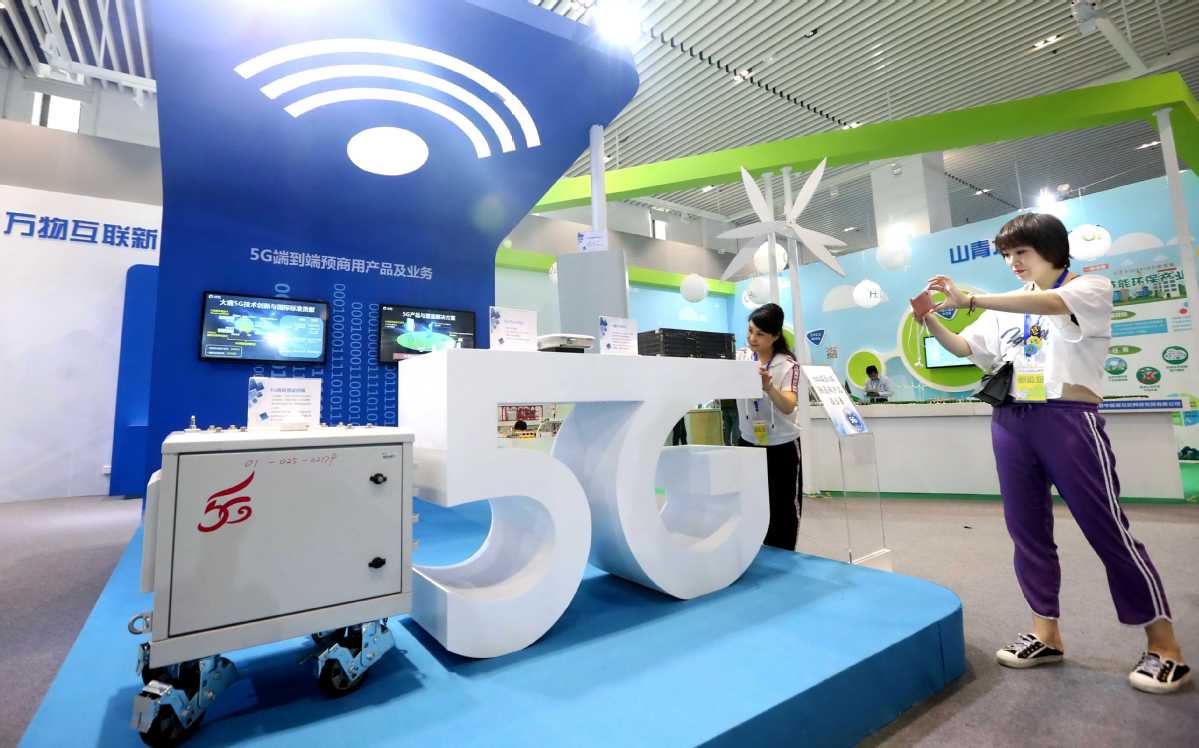China plans coalition to fight data theft


China's Foreign Ministry unveiled the Global Initiative on Data Security on Sept 8 and called on other countries to maintain data security in a comprehensive, objective and evidence-based manner.
This was in sharp contrast to the United States' Clean Network program announced by US Secretary of State Mike Pompeo in August, which was to exclude Chinese telecommunications companies, apps, cloud providers and submarine cables from the US market.
Besides their competition in trade and geopolitics, the cyberworld is now preparing for a prolonged battle between the two tech giants.
The US is trying to ban or blacklist apps, such as TikTok and WeChat, and Chinese telecommunications company Huawei Technologies, in the name of a clean network.
An initiative to establish global data security rules is the Chinese reply to the US move for the common good of the whole world. China justifies the initiative as a move to protect cyber sovereignty.
China has accused the US of harassing Chinese companies and stealing information from ordinary citizens, citing national security concerns. Here, when China speaks of cyber sovereignty, it is trying to unite the world against US data theft.
Since the 1980s, the West, including the US, has tried to assert its influence in numerous regions under the drumbeat of promoting development, by offering assistance in building basic local infrastructure, such as roads and bridges.
Beginning in the 1990s, the concept of development began to change. In addition to infrastructural development, the information technology sector began to exert its influence in the development programs by opening new doors for trade and investment.
Although initially, the US, as well as European countries, controlled the IT sector, in recent years Chinese companies-with a wide range of low-cost IT services and products-have changed the IT landscape, which affects economic development, including poverty alleviation and even how people conduct their commerce and daily lives.
China's Alibaba is the first company to challenge the Western monopoly in the tech business. After that, apps such as WeChat and TikTok quickly gained popularity around the world.
Chinese companies quickly captured the markets in populous and developing countries. For instance, India imports 60 to 70 percent of its electronic devices from China. African consumers are also highly dependent on Chinese electronic goods, which invariably are priced below comparable products from the West.
China seeks to strengthen cooperation with different countries through trade and investment, apart from its affordable IT products and services. In this way, China has expanded its influence on the world stage by befriending many countries and offering assistance as appropriate.
The same policy is reflected in China's initiative on data protection. China asks all states to be careful about data security and is encouraging other countries to sign on.
Nowadays, the US has not been able to compete with China in several areas. Its dismal performance in managing the pandemic has given it the distinction of suffering the largest number of casualties and infections. This contrasts starkly with China's decisive moves with its citywide lockdowns and other stringent anti-COVID-19 measures.
China is on the verge of marketing a vaccine against COVID-19.The third phase of vaccine trials by Chinese companies is underway. It is expected that the Chinese vaccine will be available before America's, which will bring China closer to conquering the global pharmaceutical market.
China is also driving the global economy. The US could, however, consider two possibilities as countermeasures. First, it can boost the growth of its own economy. If successful, it will make the US less accessible to China.
However, there are no signs of a US economic resurgence. The second option for the US is to stifle the Chinese economy. One way is to get the Chinese companies out of the US economy. Another is to restrict US IT support to Chinese IT industries, especially semiconductors. In other words, depriving Chinese companies the opportunities for more trade and IT development.
The US is pushing for a so-called tech war against China. It will likely cost both countries more than $3.5 trillion, according to Deutsche Bank. Already the Trump administration has proposed a 30 percent increase in expenditure for its IT sector along with other areas of science and technology.
However, China has launched a five-year plan to invest $1.4 trillion for building new IT infrastructure. In addition, it established in 2019 a $29 billion fund for its semiconductor industry. IT industries in both countries are competing to recruit the best talent.
China has started talks with some countries to gain support for its initiative on global cybersecurity. The Chinese foreign minister has reviewed the situation at a meeting with the foreign ministers of the G20 nations to seek their support.
Stealing of personal data is a clear violation of individual sovereignty and human rights. China is aiming to form a world coalition to fight it. It is hoped that a United Nations body can be set up to oversee this issue.
The author is a political analyst based in Bonn, Germany. The views do not necessarily reflect those of China Daily.
































